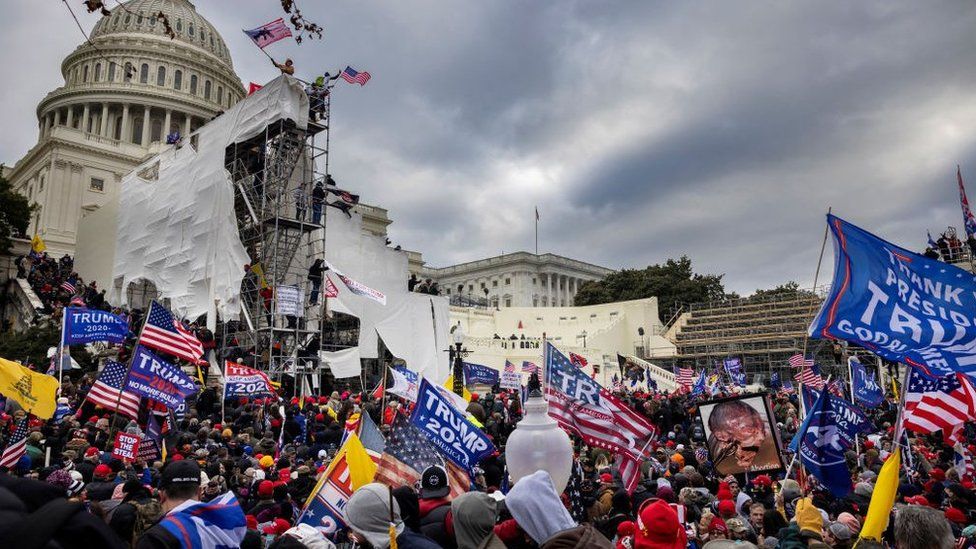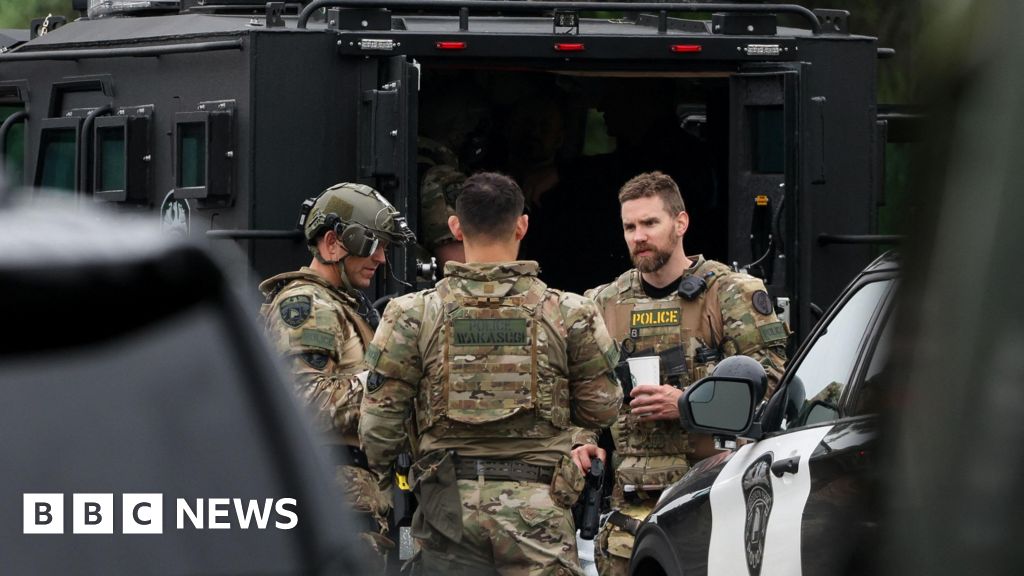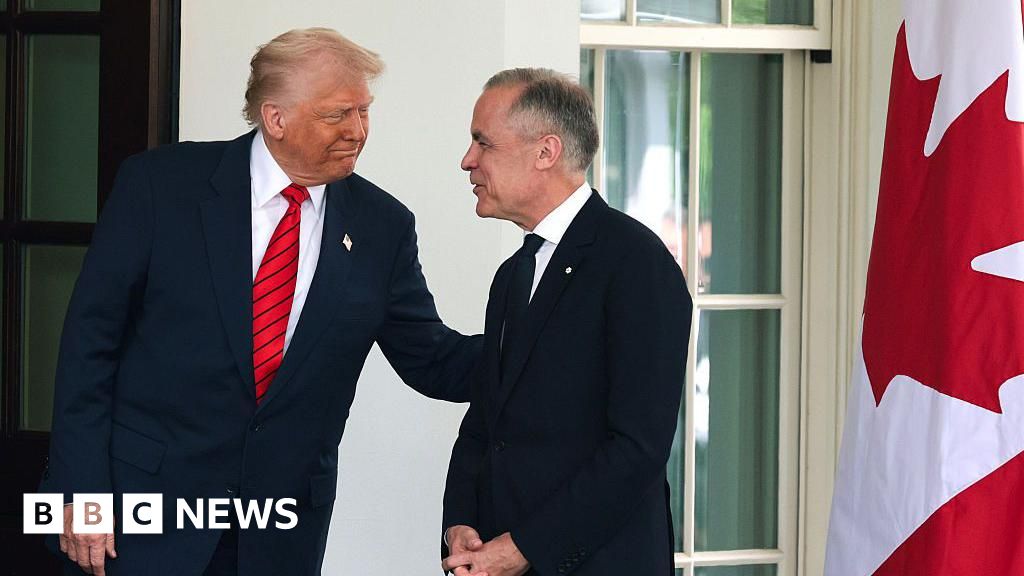ARTICLE AD BOX
 Image source, Brent Stirton
Image source, Brent Stirton
Hundreds of Trump supporters stormed the Capitol after holding a "Stop the Steal" rally on 6 January, 2021
The US Supreme Court will hear a case that could undo felony charges for those who stormed the Capitol in 2021.
It zeros-in on whether a 2002 federal law created to prevent the destruction of evidence could apply to individuals involved in the 6 January riots.
More than 350 people have been charged or convicted in the incident under that law, which carries a 20-year prison penalty.
Donald Trump also is charged with that count in the pending federal case accusing him of election interference.
How the top court rules on the case heard Tuesday could have wide-ranging impacts on the hundreds of people charged, convicted or sentenced under the law, as well as the prosecution of Mr Trump.
Here is a quick breakdown of the key players and the law being argued:
What is the 2002 federal law at the centre of the trial?
The law is called the Sarbanes-Oxley Act.
It was passed in response to the Enron scandal in the early 2000s, after it was exposed that those involved had engaged in massive fraud and shredding documents.
It criminalizes the destruction of evidence - like records or documents. But it also penalises anyone who "otherwise obstructs, influences or impedes any official proceeding, or attempts to do so."
How has it been used in response to the 6 January riots?
Under the Sarbanes-Oxley Act, the US Department of Justice (DoJ) has brought obstruction charges against those who participated in the storming of the Capitol.
Federal prosecutors argue they did so to impede Congress' certification of the presidential electoral vote count to cement Joe Biden as the winner of the 2020 election.
Therefore, the latter portion of the law that deals with obstructing an "official proceeding" would apply, the DoJ says.
Who is challenging the law's use in this case, and why?
The Supreme Court is hearing a challenge to the law's application brought forward by a former Pennsylvania police officer.
Joseph Fischer was charged under the Sarbanes-Oxley Act with obstruction of a congressional proceeding on 6 January, as well as assaulting a police officer and disorderly conduct.
His lawyers argue that prosecutors overreached with applying the Act, which they say deals explicitly with destroying or tampering with evidence integral to an investigation.
Those who challenge the law's application in 6 January cases also argue that a broad interpretation of the law would allow the prosecution of lobbyists or protestors who disrupt matters in Congress.
How could the Supreme Court ruling impact Trump?
The former president is charged under the very same law in a federal case accusing him of working to overturn the results of the 2020 election, which he lost to Mr Biden.
If Supreme Court justices rule that the law does not apply to the 6 January rioters, Mr Trump could seek dismissal of half the charges he faces in that case.
It also could be seen as a political win for the former president, who is seeking re-election in November, as he repeatedly has accused prosecutors of overreach.
A final ruling is not expected until June.

 1 year ago
61
1 year ago
61








 English (US) ·
English (US) ·